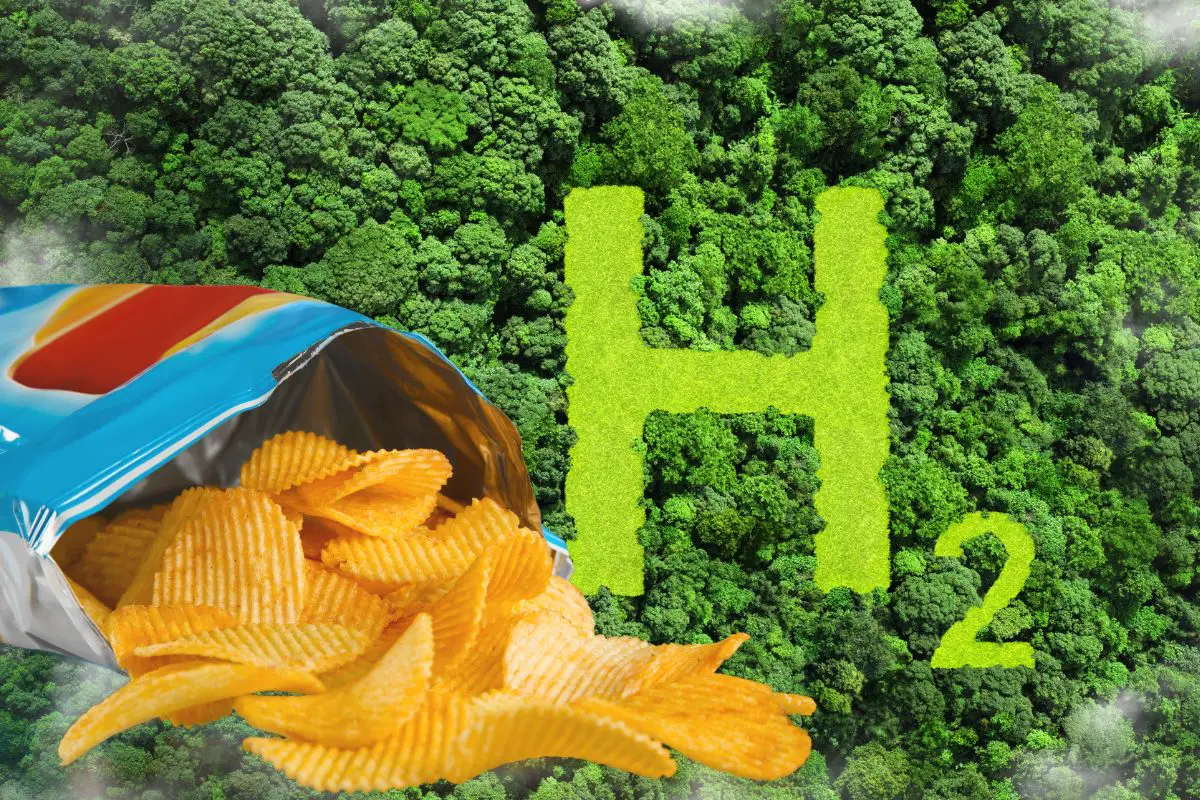3,000 tons of low-carbon potato chips have been produced in Spain.
Fertilizers made with green hydrogen and used to grow potatoes for PepsiCo’s popular potato chip brands, Lay’s and Ruffles, have produced 3,000 tons of potato chips at the company’s plant in Burgos, Spain. The first of these chips are already being sold on the Spanish market.
This marks PepsiCo delivering its first low-carbon crop results.
Back in July 2023, PepsiCo partnered with Fertiberia to launch a pilot program intended to lower emissions in potato cultivation. Fertiberia is a Spain-based leader in sustainable fertilization and develops products and solutions for green hydrogen, green ammonia, plant nutrition and industry.
As part of this pilot project, a total of nearly 9,000 tons of high-quality potatoes were produced on an estimated 200 hectares of fields in Burgos, Álava, and La Rioja. Due to using sustainable fertilizers from Fertiberia, the emissions associated with the production of these potatoes were lowered by 85,000 kg CO2 equivalent.
This much eco-friendlier crop production resulted in 3,000 tons of potato chips for PepsiCo, marking a significant achievement for the Impact Zero low-carbon crop nutrition solutions pilot program.
Potato farmers are satisfied with the green hydrogen crop nutrition solutions.
It’s not only PepsiCo and Fertiberia that are satisfied with the results. PepsiCo potato farmers who participated in the first phase of the program, are equally pleased with the results and the benefits of using the new crop solutions.
Among these benefits include lowering carbon dioxide emissions by using renewable energy sources to power the production process instead of natural gas. The Impact Zero line lowers CO2 emissions from crops while at the same time improving their yield via the incorporation of ground-breaking technologies, ensuring agronomic efficiency and environmental effectiveness. More than that, using these new crop solutions has led to the first potatoes on the market to be produced from green hydrogen.
According to the head of the Agriculture Department at PepsiCo Southwest Europe, Christian Cerezo, the Impact Zero line has aided in lowering their potato crops carbon footprint by 15{c431b1036349617aea55b35aa92592c3cb3fecc7f94273a754a3b674e9a603ce}. Cerezo explained that the achievement represents another step toward PepsiCo reaching its goal of decreasing CO2 emissions in the countryside “to reach zero net emissions by 2040.”
PepsiCo on track to achieve first net-zero plant in 2025
 The food and beverage giant isn’t only lowering its carbon footprint in Spain by producing potatoes with the help of green hydrogen power. The company is also working on other ways to decarbonize in the nation.
The food and beverage giant isn’t only lowering its carbon footprint in Spain by producing potatoes with the help of green hydrogen power. The company is also working on other ways to decarbonize in the nation.
Earlier this year in March, PepsiCo announced its goal for its beverage plant in Álava Basque Country in Northern Spain (which produces Pepsi and local brands KAS and Bitter KAS) to become the company’s first plant in the world to achieve net-zero emissions by 2025.

